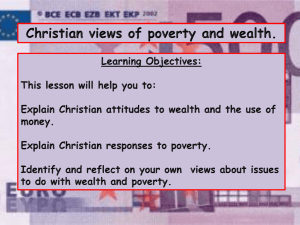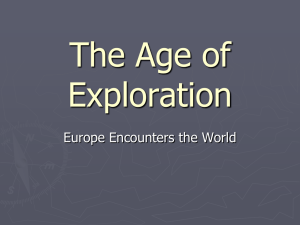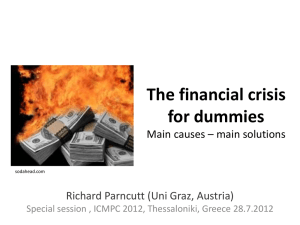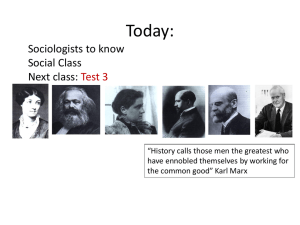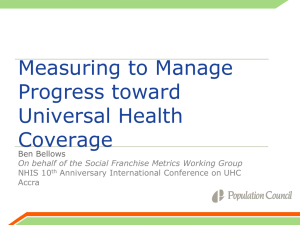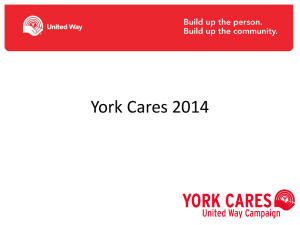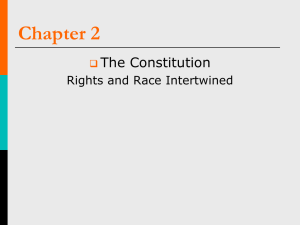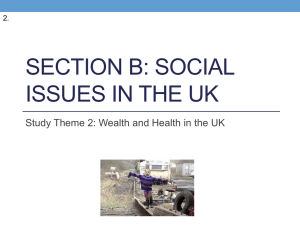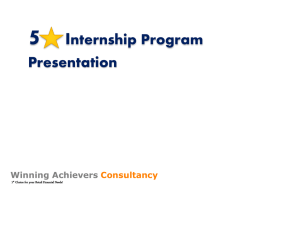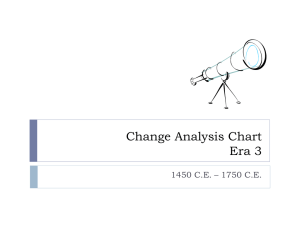Transformations in Europe
advertisement
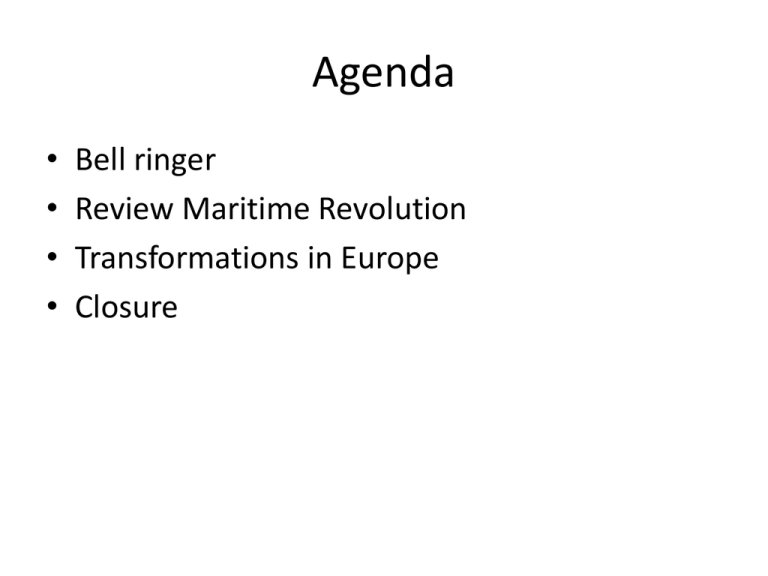
Agenda • • • • Bell ringer Review Maritime Revolution Transformations in Europe Closure Review • What social, political, and military developments contributed to the rise of European nations during this period? Unit 4: Global Interactions (1450 – 1750) ESSENTIAL LEARNING: TRANSFORMATIONS IN EUROPE (15001750) Objectives • Evaluate how the interaction of traditional beliefs and revolutionary ideas influenced the cultural history of early modern Europe. Essential Questions • How did the interaction of traditional beliefs and revolutionary ideas influence the cultural history of early modern Europe? Map 17-1, p. 454 Target: Culture and Ideas • Reformation – theological controversies that broke Latin Church unity. • Early Reformation – 1500 – papacy gained importance, corruption, dissent. – Large donations, tax receipts. – Martin Luther – opposed sale of indulgences • 95 Theses. – John Calvin (1509-1564) – predestination. p. 450 • Counter Reformation and the Politics of Religion – Latin Christian Church reform movement. – Council of Trent. – 1540 – Ignatius Loyola created the Society of Jesus (Jesuits) – Inquisition. – Henry VIII – became head of the Church of England (Anglican Church). • Local Religion, Traditional Culture, and WitchHunts – Blend of church rituals with local customs. – Witch-hunts by Protestants and Catholics. • Late 16th and 17th centuries – northern Europe – Rising social tensions, rural poverty, environmental strains. • The Scientific Revolution – 16th century – observation and experimentation challenged prevailing conceptions of the physical world. – Nicholas Copernicus – heliocentrism. – Galileo Galilei – proved heliocentrism. – Isaac Newton – Law of Gravity. – Brahe, Kepler, Boyle. – Intellectual and religious leaders encouraged political authorities to suppress these ideas. – Printed books spread new ideas. – Other traditions were soon challenged. • The Early Enlightenment – 18th century movement – one could reform society by discovering rational laws of social behavior. – Influenced by Scientific Revolution, undermining of the moral authority of religion, church opposition. – Influenced revolutions after 1750. – Many Catholic and Protestant leaders opposed. – European monarchs selectively endorsed new ideas. – Europe in 1750 – political and religious divisions, growing literacy, and the printing press spread ideas. Essential Questions • How did the interaction of traditional beliefs and revolutionary ideas influence the cultural history of early modern Europe? Agenda Review • How did the interaction of traditional beliefs and revolutionary ideas influence the cultural history of early modern Europe? Unit 4: Global Interactions (1450 – 1750) ESSENTIAL LEARNING: TRANSFORMATIONS IN EUROPE (15001750) Objectives • Describe the factors that contributed to the wealth of some Europeans and the great poverty of others from 1500-1750. Essential Questions • What factors contributed to the wealth of some Europeans and the great poverty of others from 1500-1750? Target: Social and Economic Life • Small number of dominant noble families, mostly exempt from taxation. • Larger class of prosperous commoners. • Most – poor laborers, journeymen, apprentices, and rural laborers. • The Bourgeoisie – Expanding trade = growth of European cities. – Urban wealth from manufacturing, finance, and trade. • Bourgeoisie (middle class). p. 461 – Sought mutually beneficial alliances with European monarchs. – Governments invested in infrastructure to promote trade (ex. canals). – Some bought land and raised status. • Peasants and Laborers – Famine and small surpluses before high-yielding new crops by the 1700s. – Miners, lumber-jacks, and charcoal makers. – Poverty provoked rebellions. • Women and the Family – Status closely tied to husband. – Privileged families more likely to arrange marriages. – Europeans married later. • Low birthrate, limited family size. – Bourgeois parents wanted children to be successful. • Municipal schools. • Schools, most guilds, and most professions barred females. Essential Questions • What factors contributed to the wealth of some Europeans and the great poverty of others from 1500-1750? Agenda Review • What factors contributed to the wealth of some Europeans and the great poverty of others from 1500-1750? Unit 3: Regional and Transregional Interactions (600 C.E. – 1450 C.E.) ESSENTIAL LEARNING: TRANSFORMATIONS IN EUROPE (15001750) Objectives • Evaluate how differing policies in the areas of religion, foreign relations, and economics determined the very different experiences of early modern European states. Essential Questions • How did differing policies in the areas of religion, foreign relations, and economics determine the very different experiences of early modern European states? Target: Political Innovations • State Development – Political diversity – No creation of a single, integrated empire in the early 16th century. Map 17-2, p. 464 • The Monarchies of England and France – 17th century – conflicts with powerful rivals. – England • Charles I – English Civil War, defeated and executed. • The Commonwealth – Lead by Oliver Cromwell until 1658. – Glorious Revolution • James II baptized son as Catholic. • Parliament asked Mary and William to rule – Protestants • English Bill of Rights – created limited monarchy. – France • Estates General represented the clergy, nobility, and towns (bourgeoisie) – After 16th century, monarchs generally ruled alone. » Justification: divine right – God given right to rule. • Louis XIV – Palace of Versailles in 1682 “L’etat c’est moi” p. 469 – Most European rulers imitated French absolutism. • John Locke (1632-1704) – Natural rights – life, liberty, and property. – Ruler’s authority from consent of the governed, were subject to the law. – If a monarch violates natural rights, citizens have the right and duty to rebel. • Warfare and Diplomacy – Warfare was almost constant in early modern Europe. – Thirty Years War (1618-1648) caused long-lasting depopulation and economic decline. – Improvements in skill and weaponry of armed forces. – New fortifications to withstand cannon bombardments. – Stalemates meant victory increasingly depended on navies. – England – only major nation that did not maintain an army. – Balance of power – major European states formed temporary alliances to prevent any one from becoming too powerful. • France, Britain, Austria, Prussia, Russia. Map 17-3, p. 470 • Paying the Piper – Heavy military costs = need to increase revenues. – Spain • Expensive wars, expulsion of certain groups hurt economy. • Small group controlled most wealth and was tax exempt. • High sales taxes discouraged manufacturing. • Silver and gold from American colonies = inflation. – Netherlands • Emerged as the world’s greatest trading nation. • Economic success due to decentralized government. • After 1650, the English broke Dutch dominance in overseas trade. – Government role in the economy increased. – French developed national economy under Jean Baptiste Colbert. Essential Questions • How did differing policies in the areas of religion, foreign relations, and economics determine the very different experiences of early modern European states?
